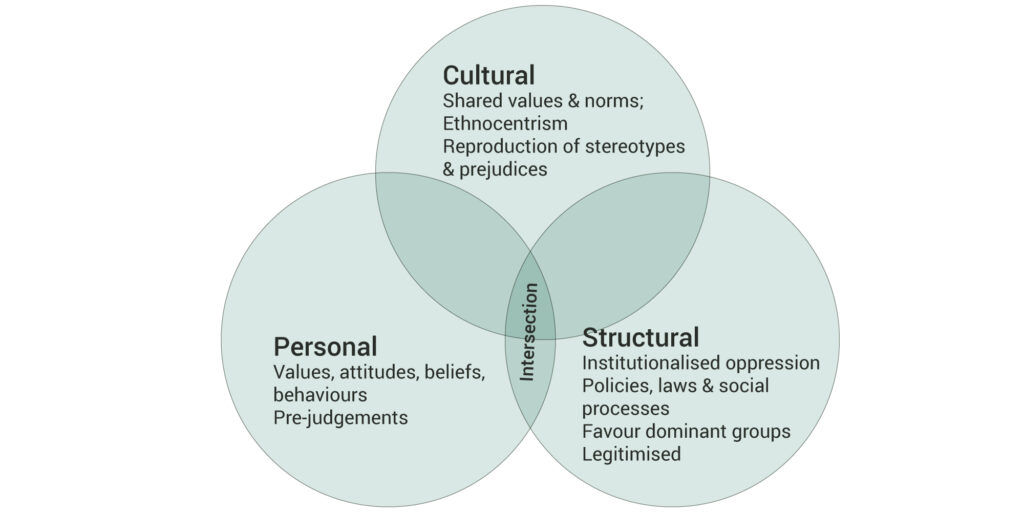Broadly, oppression refers to the subordination of some groups of persons by another – usually more dominant group of persons, and is based on intersectional social criteria such as such as “race”, sex/gender, class, sexuality, (dis)ability, age, religion, ethnicity, language and nationality. These criteria intersect to influence access to power, status and resources.
The relationship between the “oppressor” and the “oppressed” is a complex one, and the multifaceted dimensions of power must be considered. The dichotomy between oppressed and oppressor is often false, and oppression is often found within groups. People may also develop an attachment and fondness of their oppressors as discussed in Fanon’s (1970) thesis of loving the oppressor. Oppression, as reflected below is based on interlinking personal, cultural and structural factors (Mullaly, 1997).
